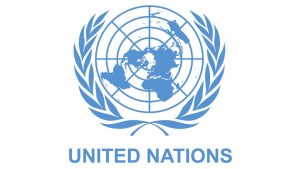 In a stark call for international assistance, the United Nations Office for the Coordination of Humanitarian Affairs (OCHA) has requested $4.7 billion in 2024 to provide urgent aid to 20.9 million people across the Sahel region of Africa.
In a stark call for international assistance, the United Nations Office for the Coordination of Humanitarian Affairs (OCHA) has requested $4.7 billion in 2024 to provide urgent aid to 20.9 million people across the Sahel region of Africa.
The Sahel, a vast area separating the Sahara Desert to the north and the tropical savannas to the south, encompasses several countries including Nigeria, Burkina Faso, Cameroon, Chad, Mali, Mauritania, Niger, and Senegal. This region has been grappling with a complex web of crises, exacerbated by instability, deteriorating security, and the devastating effects of climate change.
According to OCHA’s 2024 Humanitarian Needs and Requirement Overview report, the lives of 32.8 million people in the Sahel are affected by these interlinking challenges, leaving them in dire need of humanitarian assistance and protection services.
In Nigeria alone, the UN estimates that 7.9 million people from the states of Borno, Adamawa, and Yobe require aid, with the agency targeting 4.4 million for support with a funding requirement of $926.5 million.
“Humanitarians across the Sahel are doing extraordinary work, often in the most challenging circumstances,” said Charles Bernimolin, the regional head of OCHA. “But the tangled web of crises that are faced is more complex than ever. Yet without the resources needed to respond to their needs, these crises will continue to escalate and spread, eroding resilience and putting the lives of vulnerable children, women and men at risk.”
The report also highlighted the dire situation of internally displaced persons (IDPs) in the region, with Burkina Faso and Nigeria each hosting over 2.1 million IDPs as of April 2024. Additionally, the Sahel is home to 2 million refugees and asylum seekers, many of whom have faced multiple displacements.
Bernimolin stressed the importance of long-term solutions, urging international partners to engage with the region and find durable solutions to reduce humanitarian needs in the future.
The UN is calling on the global community to respond generously to this appeal, as the lack of adequate resources remains a major challenge in addressing the escalating humanitarian crisis in the Sahel.

